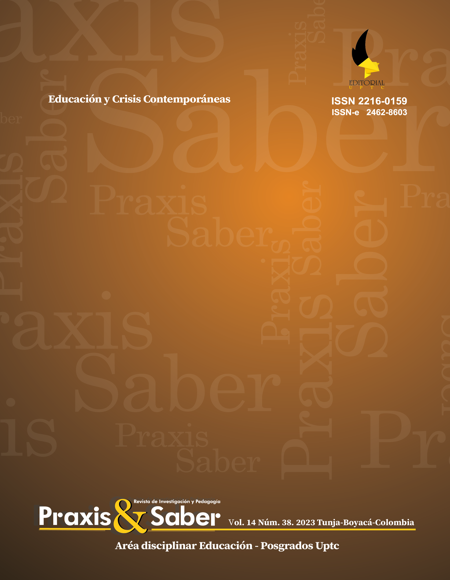Training and horizon of expectations

Abstract
This article, of an essayistic character, contextualizes the contemporary crisis caused by both the neoliberal orientation of education, limited to market interests, and by the introduction of information technologies in educational systems, which eliminate the deliberative capacity of the subject, amidst an abandonment of the modern tradition of education, whose core is autonomy. Then, the theoretical-methodological resources of Gadamer's philosophical hermeneutics and Koselleck's categories of space of experience and horizon of expectations are adopted to critically evaluate the inheritance of Western formative experience and to assess what remains valid. The critiques force the decentering of autonomy and lead to a reworking of this concept that sustains its validity, requiring from the subject the ability to creatively explore his needs, to ethically reflect on the totality of his life, and to apply universalistic norms with sensitivity. Such re-elaboration projects onto the horizon of expectations a creation of the self, as self-determination, the cleavage point of an ethical-aesthetic education, capable of opening up to unexplored possibilities, not preconceived in structured models of behavior.
Keywords
training, experience, horizon of expectation, autonomy, ethical-aesthetic education
References
- Arendt, H. (2000). Entre o passado e o futuro (5ª ed.). Perspectiva.
- Baumgarten, A. G. (2007). Ästhetik. Felix Mainer.
- Bieri, P. (2012). Wie wäre es, gebildet zu sei? Em H. Hastedt (Org.), Was ist Bildung? Eine Textantologie (pp. 228-240). Reclam.
- Bieri, P. (2013). Eine Art zu Leben: Über die Vielfalt menschlicher Würde. Hanser.
- Lei n. 13.415, de 16 de fevereiro de 2017. Altera a Lei n. 9.394, de 20 de dezembro de 1996, que estabelece as Diretrizes e Bases da Educação Nacional. Brasília, DF. http://www.planalto.gov.br/ccivil_03/_ato2015-2018/2017/Lei/L13415.htm
- Carr, N. (2011). A geração superficial: o que a Internet está fazendo com nosso cérebro. Agir.
- Carr, N. (2020, dezembro 31). Not being there: from virtuality to remoteness. https://www.roughtype.com/?p=8824
- Carr, N. (2021, outubro 31). Meanings of the metaverse: Productizing reality. https://www.roughtype.com/?p=8935
- Derrida, J. (1994). Espectros de Marx. Relume-Dumará.
- Foucault, M.(1985). Microfísica do poder (5ª ed.). Edições Graal.
- Foucault, M.(1991). Vigiar e punir: nascimento da prisão (8ª ed.). Vozes.
- Freud, S. (1988). Uma dificuldade no caminho da psicanálise. Em S. Freud, Obras psicológicas completas de Sigmund Freud (Vol. 12 (pp.145-153). Imago.
- Gadamer, H. (1990). Hermeneutik I Wahrheit und Methode: Grundzüge einer philosophischen Hermeneutik. Mohr Siebeck.
- Gadamer, H. (1993). El problema de la conciencia histórica. Tecnos.
- Gadamer, H. (2000). Da palavra ao conceito. Em C. Almida, H. Flickinger, & L. Rohden (Eds), Hermenêutica Filosófica: nas trilhas de Hans-Georg Gadamer (pp. 13-26). Edipucrs.
- Hermann, N. (2021). Ética e formação: o vínculo irrenunciável. Em J. Carvalho (Org.), Pensar a educação em um mundo problemático (pp. 87-97). Intermeios; SOFELP; Capes.
- Honneth, A. (2009). Crítica del agravio moral: patologías de la sociedad contemporánea. Fondo de Cultura Económica; Universidad Autónoma Metropolitana. DOI: https://doi.org/10.2307/j.ctvm7bcdz
- Humboldt, W. (2010). Schriften zur Anthropologie und Geschichte. Wissenschaftliche Buchgesellschaft.
- James, H. (2003). A arte do romance. Globo.
- James, H. (2009). A taça de ouro. BestBolso.
- Kant, I. (1974). Grundlegung zur Metaphysik der Sitten. Vol. 7. Suhrkamp.
- Koselleck, R. (2006). Futuro passado: Contribuição à semântica dos tempos históricos. Contraponto; Ed. PUC-Rio.
- Murdoch, I. (2013). A soberania do bem. Editora da UNESP.
- Neto, J. C. M. (2008). Educação pela pedra. Alfaguara.
- Nussbaum, M. (1992). Love’s knowledge: Essays on philosophy and literature. Oxford University Press.
- Nussbaum, M. (2010). Sin fines de lucro: por qué la democracia necesita de las humanidades. Katz. DOI: https://doi.org/10.2307/j.ctvndv60c
- Oelkers, J. (2018, março 16). Populismus und Autoritarismus: Herausforderungen für die öffentliche Bildung. https://www.ife.uzh.ch/dam/jcr:0f13e510-d60b-44b3-afea-30e32a1efb3d/Aarau_Populismus.pdf
- Platão. (1983). Diálogos. Vol. 2. Gredos.
- Ruiz, C. (2021). Algoritmização da vida: a nova governamentalização das condutas. Cadernos IHU Ideias, 19(314), 4-20. https://www.ihu.unisinos.br/images/stories/cadernos/ideias/314cadernosihuideias.pdf
- Scolnicov, S. (2006). Platão e o problema educacional. Loyola.
- Seel, M. (2010). Estética del aparecer. Katz. DOI: https://doi.org/10.2307/j.ctvm7bd70
- Sibilia, P. (2021, novembro 8) Metaverso: entre planos e incertezas, o risco de uma “bolha sem fora”. IHU on-line, 21(550), 13-23. https://www.ihuonline.unisinos.br/media/pdf/IHUOnlineEdicao550.pdf
- Stederoth, D. (2020). Capital humano e panorama educacional: sobre a atualidade da Crítica de Heydorn ao Plano Estrutural para a Educação (1970). Educação, 43(2),1-13. https://www.redalyc.org/journal/848/84866249014/html/ DOI: https://doi.org/10.15448/1981-2582.2020.2.35974
- Stephenson, N. (2015). Snow Crash. Aleph.
